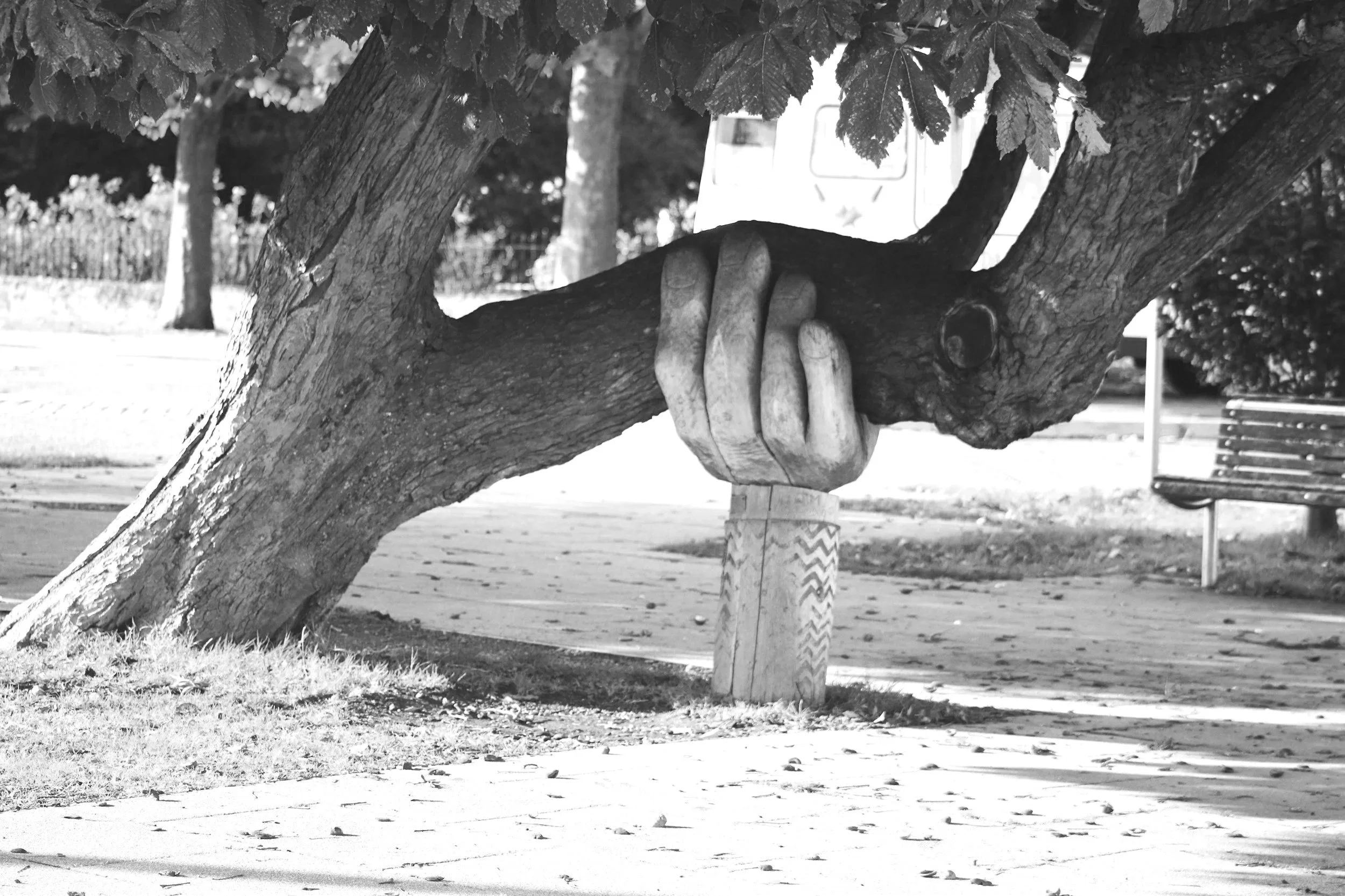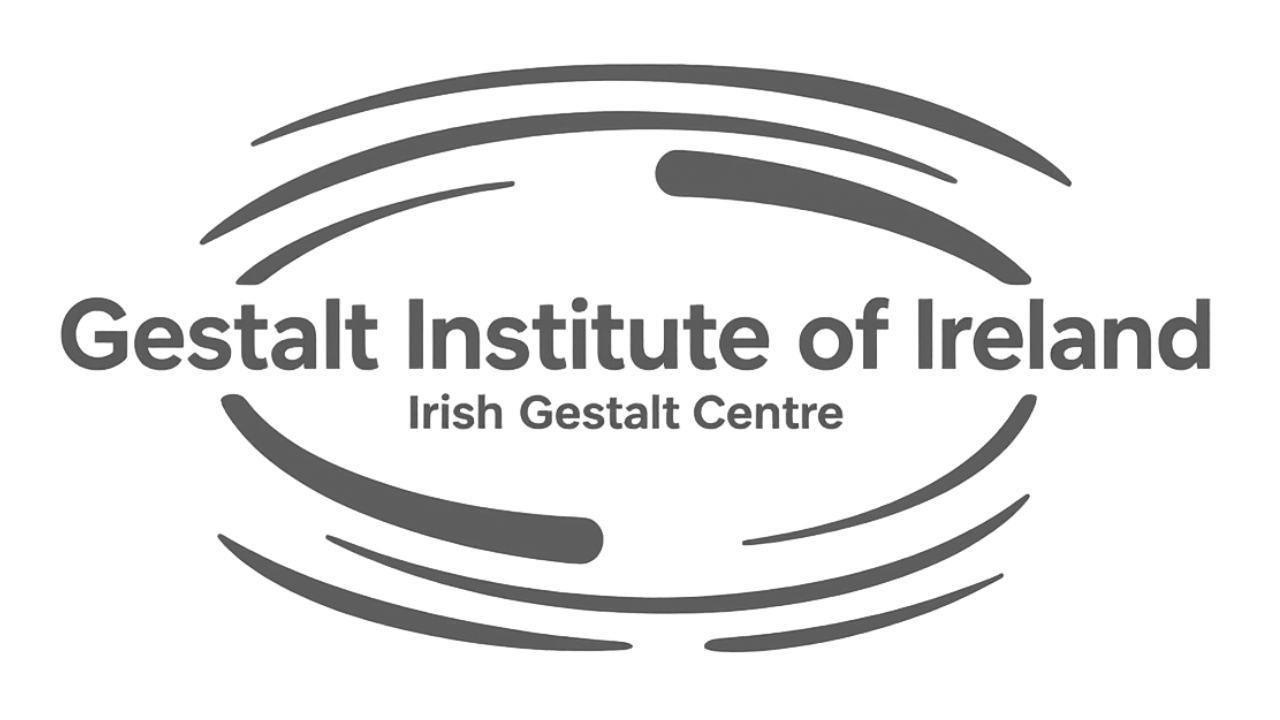RESEARCH
PROGRAMME
Student and Practitioners Inquiries
-

How Do I Build And Support Tolerance For The Unknown In Coming Home To My Body”.
Inquiry Abstract
Abstract for MA Gestalt Psychotherapy (2023) for the Gestalt Institute of Ireland. Engaging in qualitative research on embodiment, as a therapist and a woman the initial question that emerged for me was ‘How can I build and support tolerance for the unknown in coming home to my body?’ In the socio-cultural context of western civilisation, cognitive accomplishment and certainty are lauded as goals.
This bias, influenced by cartesian philosophy, denies much of what it is to be an embodied, dynamic, participating being. As I engaged with the research process my question evolved.
What emerged was a new, if related question; “How does the embodied presence of the therapist support when there is trauma in the field?”. Our reasons for leaving our embodied selves very often involved trauma of one kind or another.
To come home to our bodies we require support and in the climate where trauma is experienced and where its impact continues, support is rarely available.
More than having a sense of satisfaction in answering my research question, I feel that through turning my gaze with others towards what had previously eluded me, I have been initiated into an experience of embodiment which, to use Todres words, ‘is full of fertile excess, intimate with crossings and bridges, textures and relationships that are the “stuff” of understanding’.
Inquiry Host
Kate McCarthy
Host Bio
Kate originally trained in Humanistic and Integrative Psychotherapy. Subsequently she did the Sensorimotor Trauma Training.
However it was really through her research master’s in Gestalt that she got a sense of coming home to her body. S
he has worked as a core tutor on a four year psychotherapy training programme and supervised students in training for a further two years.
She works in private practice as a psychotherapist and supervisor and also does some work with women in Direct Provision. She feels passionately about her work.
-

Attending to the Id: The Ground that Supports the Dance of Embodied Presence and Contact in the Therapeutic Relationship – A Collaborative Embodied Action Inquiry
Inquiry Abstract
This research arose out of my desire to become a better therapist.I used the vehicle of research to support me to stay with the aspects of my practice that were causing me difficulty, to learn about and from them, to inquire with others about their own practice, all with the goal of improving skills and capacity as a gestalt practitioner.
My interest lies in the aftermath of childhood trauma – its impact on therapeutic ground, embodied presence, and contact in the therapeutic relationship.
The research is about listening to the whispers of what is not yet explicit, staying present to what emerges through the cycles of inquiry.It is about the impact of trauma on embodied presence.It is about exploring how I and my co-inquirers can lose our ground in the therapeutic relationship, and exploring how each of us find ground again in the clinical setting.It is about ebb and flow, the dance of availability and contact in the therapeutic relationship and what supports this dance.
Inquiry Host
Sharon Murphy
Host Bio
Sharon is a Gestalt psychotherapist based in South Kilkenny. She works both in-person and online and offers a warm, compassionate space where clients can explore the issues that have brought them to therapy.
Sharon deeply believes in the transformative power of the therapeutic relationship and works collaboratively with clients to enhance awareness and support new ways of living more fully and meaningfully. Her approach is both creative and holistic, integrating body work, metaphor, symbols, and imagery into the therapeutic process.
Sharon brings a diverse and rich professional background to her work. With over 25 years in personal development and complementary therapies, she is a qualified and seasoned facilitator, mentor, and trainer.
She has a wealth of experience in cancer care, supporting both individuals living with a diagnosis and those affected by the diagnosis or loss of a loved one.
In addition, Sharon has spent over a decade working in social care settings. She has supported children and young people facing challenges in the education system and assisted families navigating these difficulties.
Sharon has also worked in the disability sector, providing therapeutic support to adults with intellectual disabilities, as well as professional supervision to the social care staff who support them.
-

Exploring Eros with Gay Men: How do I, as a gay queer Gestalt therapist, navigate Eros in the therapeutic space with gay male clients?
Inquiry Abstract
This dissertation explores the experience of Eros in therapeutic settings between clients and therapists who are gay. Qualitative research, with an action research approach using ontological and epistemological considerations in a relational, post-modern, positivist paradigm with collaborative enquiry, hermeneutic and phenomenological research approaches using mixed methods is used to collect, analyse and collate data.
Key themes that emerged when exploring and working with Eros are contact, shame, and loss. This dissertation explores the value of contracting, care and attention and how this can support this exploration. It posits the possibility of deepening a therapeutic relationship by attending to Eros in our practice and its impact as therapists.
Inquiry Host
Patrick McElligott
Host Bio
Patrick is a Gestalt Psychotherapist with over 15 years of experience in the youth, voluntary, and community sectors, focusing particularly on individuals with diverse genders and sexual orientations.
He is currently a Senior Counsellor at the University of Limerick, where he is dedicated to providing a safe, inclusive, and authentic space for clients. In his role, Patrick facilitates both support and social groups, as well as individual sessions, addressing a wide range of personal and interpersonal issues.
Patrick’s professional background is multifaceted, encompassing qualifications in psychotherapy, supervision, training, group facilitation, and mediation.
He is a qualified Electrician and a Reiki therapist, integrating these diverse skills into his holistic approach to therapy.
Patrick’s approach to therapy is grounded in the belief that self-expression and narrative are central to the healing process. He views psychotherapy as a means to explore and reflect upon life experiences and foster self-compassion.
Through his work, Patrick strives to create transformative spaces where individuals can explore their identities, heal from past experiences, and move towards a more authentic and fulfilling life.
-

Grief in the therapeutic encounter: Gestalt Psychotherapists in the midst of personal grief encountering disenfranchised grief in their therapeutic practice.
Inquiry Abstract
As a developing Gestalt Psychotherapist Practitioner my father died five months after qualifying and as I was establishing myself as a practitioner in a Cancer Support Centre and a Family Resource Centre in the South East of Ireland.
The intersection of my own personal loss and what I was encountering within clinical practice were the factors that influenced my interest in grief within the therapeutic encounter.
This inquiry explores how Gestalt psychotherapists navigate personal grief while encountering disenfranchised grief in their therapeutic practice. Using a hermeneutics phenomenological methodological approach, the inquiry employs three practitioner-based cycles of inquiry to examine these experiences. The three cycles were, cycle 1 - “me search”, cycle 2 - “we search” and cycle 3 – “application to practice”. Each cycle followed phases of “embodied immersion, critical reflection/reflexivity, and experimenting” (Desmond, 2019, p.7). The “me search” phase involved deep engagement with the phenomena of grief, my own and within my practice. This was documented through reflection, journaling, digital storytelling, and poetic representation. The “we search” phase, conducted with three practitioners in late 2024, included recorded and transcribed dialogues.
Once analyzed preliminary themes were shared with co-inquirers in February 2025 to check for relevance and resonance. After sharing with co-inquirers further refinement took place with the key themes being: “The shaded ground of grief and the therapists inner world” , “Grief having Space”, and “The Presence of others, both for the therapist and their clients”.
The application to practice involved ongoing reflection on the relevance of these themes to my practice. The main considerations for practice are the therapists’ capacity to ground themselves within the therapeutic encounter should their personal grief be evoked and an openness to exploring the possibility of co-transference in supervision; the significance of the solid presence of the other and the co-creation of ritual when disenfranchised grief is present.
Inquiry Host
Mairéad Barry
Host Bio
Mairéad is a Gestalt Psychotherapist who practices in community-based services in the South East of Ireland. Mairéad is also a facilitator and lecturer in Health Promotion at the School of Health Sciences in SETU for over 22 years.
She specialises in facilitation, personal development, experiential groupwork and community health. She teaches on both undergraduate and postgraduate programmes, including the MA in Advanced Facilitation Skills for Health & Wellbeing.
Mairead is an IUHPE registered health promotion practitioner and is Chair of the Accreditation Board of the Association for Health Promotion in Ireland.
Her work is grounded in a commitment to collaborative approaches, meaningful engagement and reflective practice.
-

Unpacking Embodied Heteronormativity: Exploring gender and sexuality identities in therapy in the context of cis-gender and heterosexual relationships.
Inquiry Abstract
I have become increasingly aware of how assumed shared meanings of womanhood can limit my capacity for contact and relational spontaneity. I noticed how, by accepting heteronormative definitions of gender and sexuality as “given,” I inadvertently collude with binary and deterministic models of being and relating. This personal awareness became the ground for my research inquiry into how heteronormative structures operate within therapeutic encounters between cis-gender heterosexual women.
Guided by the question, “How do I as a Gestalt therapist within a heteronormative ground cultivate a quality of encounter with my heterosexual female clients that supports questioning of normativity and fosters spontaneity?”, this inquiry drew on an action research approach informed by hermeneutic phenomenology and embodied collaborative inquiry. It integrates key Gestalt principles: phenomenological attention to lived experience, a dialogical stance inspired by the I-Thou philosophy, and field theory, recognising experience as co-created within relational fields.
Two themes emerged: (1) Spinning Around the Vortex of a Disrupted Heteronormative Field - revealing embodied responses of head–body separation and denial when therapists are confronted by the oppressive field; and (2) After the Storm - where space emerges for unfolding, exploring difference, and reclaiming self-worth in therapeutic encounters between women.
This inquiry highlights how integrating feminist sensibilities with Gestalt’s embodied, dialogical, and field-sensitive approach can deepen awareness of internalised oppression, foster relational integrity, and open possibilities for novelty and embodied truth in therapy.
Inquiry Host
Aneta Gawin
Host Bio
I am an accredited Gestalt Therapist in private practice, originally from Poland and now living in Ireland. I identify as a cis-gender, heterosexual woman and I'm in a long-term marriage, and a mother to three children and two dogs.
I trained at the Gestalt Institute of Ireland (SETU) at postgraduate and MA level and also hold an MA in Clinical Psychology from Warsaw, Poland.
For many years, I have worked in the social care field, supporting people with disabilities and their families. I approach each person as unique, seeing difference as beauty and struggle as potential for growth and creative adjustment.
My work is relational, holistic, and grounded in dialogue, phenomenological inquiry, and co-creation within the ever-present field conditions. I practice in Dublin and Wicklow, where my home is in the beautiful village of Avoca.
